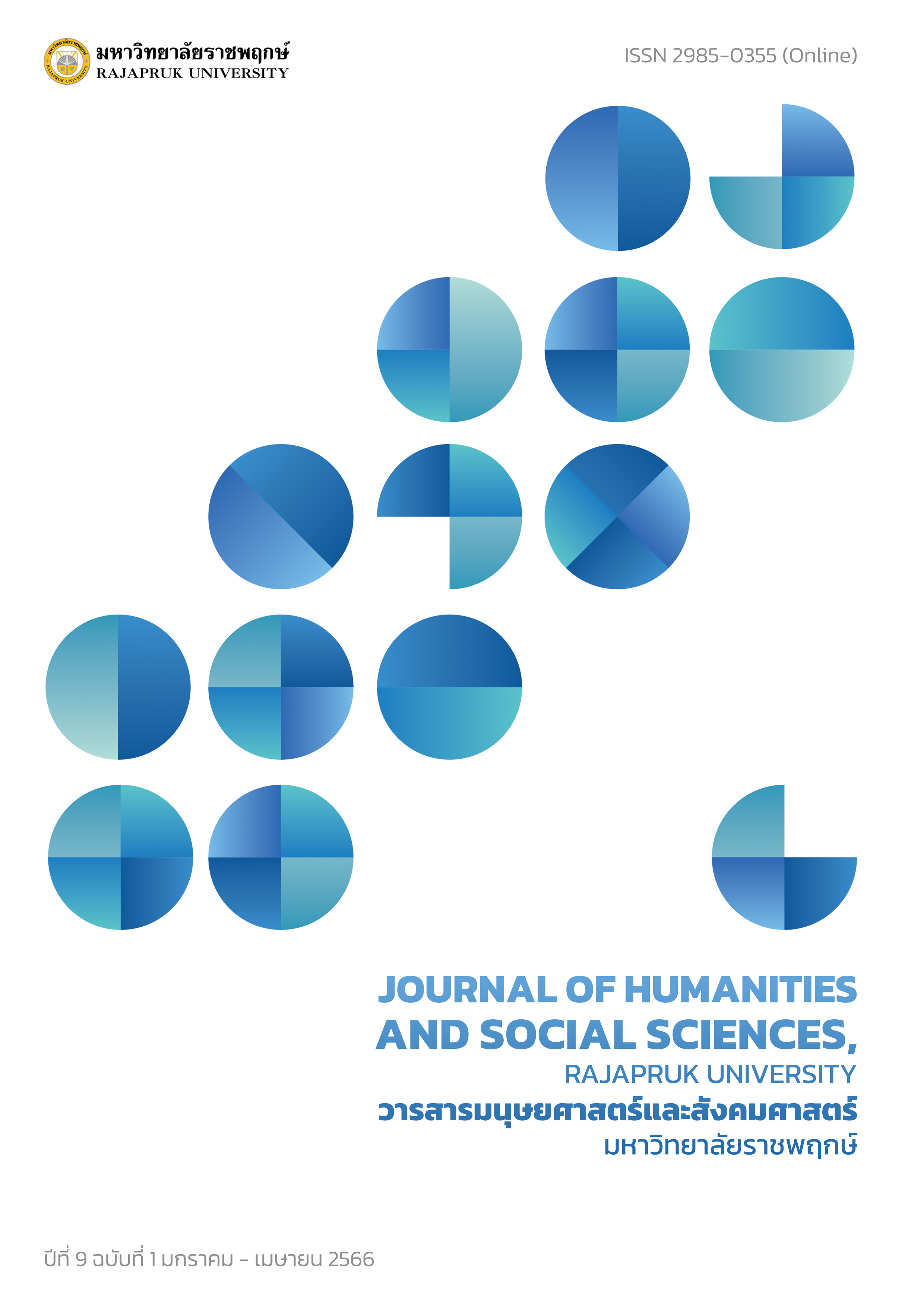Influence of Service Quality on the Decision to use Fortune Predestination Business of Users in Bangkok
Main Article Content
Abstract
The purposes of this research were to: 1) study the level of service quality, 2) study the level of decisions to use fortune predestination business of users in Bangkok; and 3) Study Influence of service quality on the decision to use fortune predestination business of users in Bangkok. The sample group consisted of 400 users of fortune predestination business in Bangkok, selected by using accidental random sampling. The research instrument was a questionnaire. The data were analyzed by using mean, standard deviation and multiple regression analysis.
The results showed that: 1) the users’ had opinion service quality at a high level, and the level of decisions to use fortune predestination business of users gave the highest level was process, next were people, physical evidence, product and service, place, promotion and price; and 2) The Service quality: empathy, responsiveness, tangibles, assurance and reliability affecting decisions to use fortune predestination business of users in Bangkok with predictive power of 61.5 percent.
Article Details
References
กฤตชน วงศ์รัตน์. (2563). อิทธิพลของส่วนประสมการตลาดบริการและการรับรู้ภาพลักษณ์องค์กรที่ส่งผลต่อความจงรักภักดีของลูกค้าที่มาใช้บริการรีสอร์ทและโฮมสเตย์จังหวัดเพชรบุรี. วารสารวิจัยราชภัฏเชียงใหม่, 21(3): 209-227.
กัลยา วานิชย์บัญชา. (2549). สถิติสำหรับงานวิจัย. พิมพ์ครั้งที่ 2. กรุงเทพฯ: โรงพิมพ์จุฬาลงกรณ์มหาวิทยาลัย.
ขวัญฤทัย เดชทองคำ. (2563). ความสำคัญของคุณภาพการบริการสู่ความสำเร็จของธุรกิจท่องเที่ยวภายใต้วิกฤติ COVID-19. วารสารวิทยาศาสตร์การกีฬาและสุขภาพ, 21(3) : 317-326.
ปริญญา นาคปฐม และ พิทักษ์ ศิริวงศ์. (2560). รูปแบบและพฤติกรรมในการใช้บริการศาสตร์พยากรณ์ของอาจารย์ในสถาบันอุดมศึกษา. วารสารมนุษยศาสตร์และสังคมศาสตร์, 8(1): 68-94.
พระครูสุภัทรวชิรานุกูล และคณะ. (2563). การประยุกต์ใช้หลักโหราศาสตร์ตามแนวพระพุทธศาสนา. วารสารพุทธศาสตร์ศึกษา, 11(2): 410-426.
รุจิกาญจน์ สานนท์ และคณะ. (2560). ทิศทางธุรกิจความเชื่อของสังคมไทยยุค 4.0. วารสารร่มพฤกษ์ มหาวิทยาลัยเกริก, 35(1): 12-31.
รุจิกาญจน สานนท์. (2559). ปัจจัยเชิงสาเหตุที่มีอิทธิพลต่อเจตนาเชิงพฤติกรรมของผู้ใช้บริการโหราศาสตร์ในประเทศไทย. วารสารดุษฎีบัณฑิตทางสังคมศาสตร์, 6(3): 85-105.
วิจัยกรุงศรี. (2564). แนวโน้มธุรกิจและอุตสาหกรรมไทย ปี พ.ศ.2564-2566. ค้นเมื่อวันที่ 24 สิงหาคม 2564. จาก https://www.krungsri.com/th/research/industry/summary-outlook/industry-summary-outlook-2021-2023.
ศูนย์พยากรณ์เศรษฐกิจและธุรกิจ มหาวิทยาลัยหอการค้าไทย. (2562). เช็ก 10 อันดับธุรกิจดาวรุ่ง และเสี่ยงดาวร่วง ปี พ.ศ.2563 เทรนด์ออนไลน์มาแรง. ค้นเมื่อวันที่ 24 สิงหาคม 2564, จาก https://workpointtoday.com/rising-star-business-2020/.
โสรัจจะราช เถระพันธ์. (2561). คุณภาพการบริการและการบริหารความสัมพันธ์กับผู้รับบริการที่ส่งผลต่อความไว้วางใจความพึงพอใจ และความภักดีของผู้ใช้บริการโรงพยาบาลเอกชน ในจังหวัดปทุมธานี. วิทยานิพนธ์ บริหารธุรกิจมหาบัณฑิต มหาวิทยาลัยกรุงเทพ.
Cochran, W.G. (1953). Sampling Techniques. New York: John Wiley & Sons. Inc.


